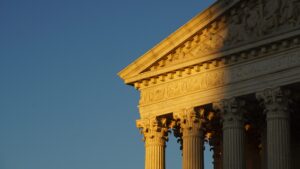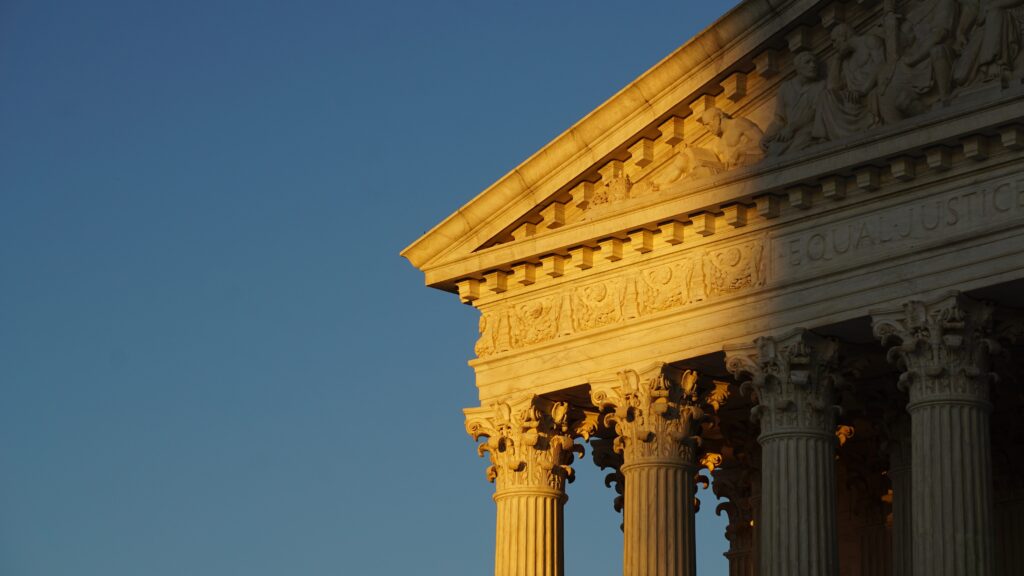By Cameron Bray
Equitable mootness is a common-law doctrine that prevents a Chapter 11 plan from being reviewed when an appellant has “failed and neglected diligently to pursue their available remedies to obtain a stay” and changes in circumstances “render it inequitable to consider the merits of the appeal.”[1] Judges and practitioners alike tend to describe this doctrine as a limit on the jurisdiction of appellate courts to “unscramble the eggs” once substantial consummation of a plan for reorganization has occurred.[2] Naturally, the exact contours of equitable mootness differ in every federal circuit, but typical “prudential” factors include (1) whether the plan has been “substantially consummated,” (2) whether a stay has been obtained, (3) whether the relief requested would affect the rights of third parties (i.e., other creditors), (4) whether the relief requested would affect the success of the plan, and (5) whether public policy supports finalizing judgment of the Bankruptcy Court.[3]
On January 10, 2022, the Supreme Court again denied certiorari of equitable mootness as applied to a debtor’s confirmed Chapter 11 plan for reorganization.[4] In the case at bar, Paul C. Clark, Sr., and two other owners of a penthouse condominium in Maryland petitioned for certiorari of lower court decisions dismissing challenges to the confirmed bankruptcy plan at issue.[5] Specifically, Clark and the petitioners appealed the Bankruptcy Court’s judgment allowing them to claim damages of only $750,552 when they had alleged more than $25 million in mold and flood damage to their seaside penthouse unit.[6] By the time, petitioners appealed the order, the debtor-in-possession—the penthouse property manager—had already paid more than $2.8 million of its required creditor obligations under the confirmed Chapter 11 plan.[7] Therefore, applying a four-factor balancing test, the District Court found that petitioners’ appeal was “equitably moot,” and the Court of Appeals for the Fourth Circuit affirmed shortly thereafter.[8]
With its decision in Clark v. Council of Unit Owners of the 100 Harborview Drive Condominium,[9] the Supreme Court denied challenges to the doctrine of equitable mootness for the fourth time in its current Term.[10] Moreover, the denials encompass a wide variety of appeals across the United States. In the first case, involving Puerto Rico and its plan to restructure $18 billion worth of bonds secured by sales tax, the Court of Appeals for the First Circuit denied review of the island’s confirmed bankruptcy plan, citing equitable mootness.[11] In the second case, involving a so-called “critical” vendor claiming it had been unjustifiably denied payment for $2 million worth of services by the Bankruptcy Court, the Second Circuit also denied review on equitable mootness grounds.[12] Finally, in the third case, involving an investor who claimed he and other unsecured creditors had been unfairly discriminated against in the Chapter 11 plan and received only 5% recovery on their claims, the Third Circuit dismissed the parties’ appeal as “equitably moot” after the debtor-in-possession had already issued and distributed new securities.[13]
While equitable mootness is a widely held and applied doctrine in almost every circuit, the rule has been criticized by both practitioners and judges as an undue, insurmountable hurdle toward appellate review of a debtor’s confirmed Chapter 11 plan for reorganization.[14] Of the doctrine’s critics, perhaps the most famous is Justice Alito, who criticized the “weaponization” of equitable mootness while serving on the Court of Appeals for the Third Circuit.[15] Dissenting from the en banc court’s opinion in In re Continental Airlines,[16] then-Circuit Judge Alito warned that there is no clear rule for when a bankruptcy appeal is deemed “equitably moot” and that having such a rule risks slamming the courthouse door on justified litigants appealing Chapter 11 plans.[17] While Justice Alito’s position remains a minority on the Court—which has yet to grant certiorari on the question of equitable mootness—the Court’s opinion may change if appellate review of a controversial case is denied as “equitably moot” now that the debtor has been allowed to proceed with its multimillion- or multibillion-dollar settlement.[18]
[1] In re Popp, 323 B.R. 260, 271 (B.A.P. 9th Cir. 2005) (citation omitted).
[2] In re Castiac Partners II, LLC, 823 F.3d 966, 968 (9th Cir. 2016) (citation omitted).
[3] In re Philadelphia Newspapers, LLC, 690 F.3d 161, 168 (3d Cir. 2012) (citation omitted).
[4] 142 S. Ct. 772 (2022).
[5] Petition for Writ of Certiorari, 2021 WL 5260064 (U.S. 2021) (No. 21-697).
[6] Clark v. Unit Owners of 100 Harborview Drive Condo., 857 Fed. Appx. 729, 730–31 (4th Cir. 2021), cert. denied, 142 S. Ct. 772 (2022).
[7] Id. at 730.
[8] Id. at 731 (noting that Clark and petitioners did not attempt to stay implementation of the confirmed plan in bankruptcy court and that there had been “substantial consummation” of the plan since its confirmation date). Both courts also noted that petitioners’ appeal threatened to “nullify the success that ha[d] already been achieved under the Confirmed Plan” and that reversal would “harm the interests of third-party creditors and other unit owners.” Id.
[9] 142 S. Ct. 772 (2022).
[10] Alex Wolf, Supreme Court Again Skips Review of Bankruptcy Appeal Roadblock, Bloomberg L. (Jan. 10, 2022), https://news.bloomberglaw.com/bankruptcy-law/supreme-court-again-skips-review-of-bankruptcy-appeal-roadblock. The other denials of certiorari were: (1) Elliott v. Fin. Oversight & Mgmt. Bd. for P.R., 142 S. Ct. 74 (Oct. 4, 2021); (2) GLM DFW, Inc. v. Windstream Holdings, Inc., 142 S. Ct. 226 (Oct. 4, 2021); and (3) Hargreaves v. Nuverra Env’t Solutions, Inc., 142 S. Ct. 337 (2021).
[11] In re Fin. Oversight & Mgmt. Bd. for P.R., 987 F.3d 173 (1st Cir. 2021).
[12] In re Windstream Holdings, Inc., 839 Fed. Appx. 634 (2d Cir. 2021).
[13] In re Nuverra Env’t Solutions, Inc., 834 Fed. Appx. 729 (3d Cir. 2021).
[14] See, e.g., Bruce A. Markell, The Needs of the Many: Equitable Mootness’ Pernicious Effects, 93 Am. Bankr. L.J. 377 (2019).
[15] Nordhoff Invs., Inc. v. Zenith Elecs. Corp., 258 F.3d 180, 192 (3d Cir. 2001) (Alito, J., concurring in judgment) (“As this case shows, our court’s equitable mootness doctrine can easily be used as a weapon to prevent any appellate review of bankruptcy court orders confirming reorganization plans. It thus places far too much power in the hands of bankruptcy judges.”).
[16] 91 F.3d 553 (3d Cir. 1996).
[17] In re Cont’l Airlines, 91 F.3d 553, 567 (3d Cir. 1996) (Alito, J., dissenting).
[18] See Brian Mann, Federal Judge Rejects Government’s Bid to Delay Purdue Pharma’s Bankruptcy Settlement, NPR (Oct. 14, 2021), https://www.npr.org/2021/10/13/1045260292/federal-judge-rejects-a-government-bid-to-delay-purdue-pharmas-bankruptcy-settle (noting concern of the U.S. Trustee that consummation of the Purdue Pharma bankruptcy plan could provide later equitable mootness grounds for the debtor upon appeal to the Second Circuit). However, on December 16, 2021, the District Court for the Southern District of New York invalidated the debtor’s confirmed Chapter 11 plan as unconstitutional and beyond the scope of Title 11. In re Purdue Pharma, L.P., 2021 WL 5979108 (S.D.N.Y. Dec. 16, 2021) (finding the Bankruptcy Court lacked authority to approve Purdue Pharma’s proposed non-consensual third-party releases as part of the plan for reorganization). Recently, the debtor filed with the Bankruptcy Court for the Southern District of New York a proposed settlement agreement under which the controlling Sackler family would pay between $5.5 and $6 billion to address the U.S. opioid crisis. Jan Hoffman, Sacklers and Purdue Pharma Reach New Deal with States over Opioids, N.Y. Times (March 3, 2021), https://www.nytimes.com/2022/03/03/health/sacklers-purdue-oxycontin-settlement.html.


